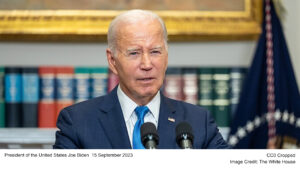Meta’s decision to end third-party fact-checking and appoint Dana White to its board has sparked internal dissent. Employees expressed concerns on Meta’s internal platform, Workplace, following Mark Zuckerberg’s announcement.
- Meta Ends Third-Party Fact-Checking: Mark Zuckerberg announced the termination of Meta’s partnerships with fact-checking organizations, sparking internal dissent and criticism from partners like Lead Stories and Check Your Fact.
- Dana White’s Board Appointment Controversy: Employees raised concerns about the decision, with some posts critical of the appointment being removed by Meta’s Internal Community Relations team.
- Shift Toward Free Expression: Zuckerberg’s move to reduce moderation on controversial topics aligns with a free expression focus but raises questions about misinformation risks and platform safety.
- Fact-Checkers React: Partners emphasized their neutrality and adherence to fact-checking standards, expressing disappointment over the abrupt decision and its impact on their operations.
Zuckerberg’s decision to reduce content moderation on controversial issues like immigration and gender identity has stirred mixed reactions. Some employees worry this change signals a disregard for factual accuracy, compromising platform safety. Others believe adopting X’s “Community Notes” model will better represent diverse perspectives.
Meta’s Internal Community Relations team removed critical posts about White’s board appointment, citing violations of Community Engagement Expectations. Employees expressed frustration and sarcasm, questioning the decision’s implications for company culture and values.
Fact-checking partners felt blindsided by the news. Alan Duke of Lead Stories and Jesse Stiller of Check Your Fact revealed they received no prior notice. The partnerships with Meta were significant revenue sources, supporting journalism dedicated to debunking false claims.
Duke rejected accusations of liberal bias in fact-checking, emphasizing adherence to International Fact-Checking Network standards. Kristin Roberts of USA Today, also a fact-checking partner, maintained that truth and facts transcend political affiliations.
Zuckerberg’s changes symbolize a shift towards prioritizing free expression. He acknowledged previous moderation errors but faced criticism for potentially undermining factual accuracy. The decision reflects broader debates on content moderation and the role of social media in shaping public discourse.
As Meta implements its new strategy, the impact on misinformation and platform integrity remains uncertain. The company’s direction will continue to be scrutinized by employees, fact-checkers, and advocacy groups alike.







Be First to Comment